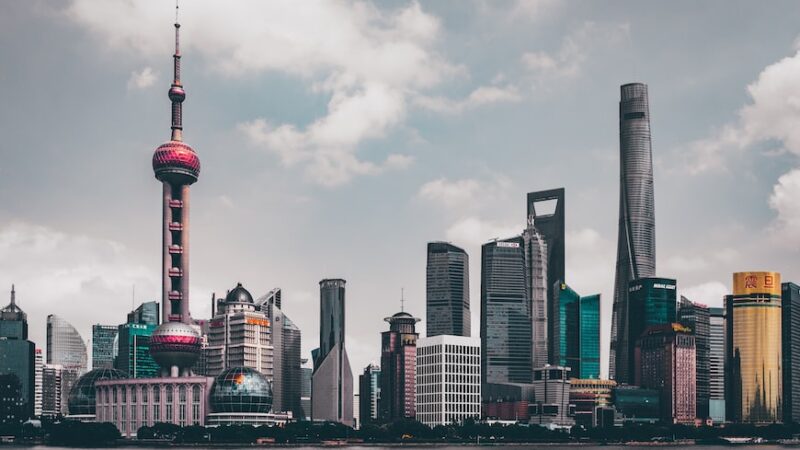If There is Hope, It Lies in the NIMBYs
~ To my good friend Chris, who – despite the best available treatment – continues to suffer with YIMBY brainrot. ~
If there was hope, it must lie in the NIMBYs, because only there in those nonconforming disregarded boomers, ~22 per cent of the population of Britannia, could the force to destroy the regime ever be generated. The regime could not be overthrown from within a newbuild. It is them and them alone who are capable of preventing further mass migration into these isles. Collective animosity to the transformation of our country over the last seventy years can only be galvanised through the emergence of direct and inescapable negative externalities of the immigrant population being here.
The NIMBY’s dug-in heels expose the costs of the unnatural population boom that has been imposed on us, through hospital appointment delays, waiting lists, the lack of available school placements, etc. and through these problems the British are made incapable of following the path of least resistance and fleeing their local ship and scurrying to cheaper houses elsewhere. NIMBYism will push us all against the wall and ensure we confront the real and existential threat facing our people.
Let us suppose we disregard the NIMBYs, fall to the knees of our enemies, and beg them to build more houses regardless of the protestations of white Lib Dem voters: for whom would they really be for? Such housing would only be accessible to the middle class and subsidised immigrants.
Around 80% of the population increase since 2001 has been due to immigration. Many settlements across the country such as Sunderland have seen a population decrease since 2001, yet have had vast newbuild suburbs tacked on around the area, so it has to be stressed that these houses being built are not for those already here.
The goal of house building is instead an attempt to maintain a semblance of stability as our occupation government intends to push immigration each year into the millions. The price of housing can never be brought down under this arrangement. All we can currently control locally in our own communities is how much space is opened up for displacement populations to be moved in. For a country that has had a negative birth-rate for decades, you would think that there would be no seething cries for concreting over the remaining pleasant lands unless there were some unnatural force being pulled forth from abroad artificially ballooning the demand for housing.
Quell your trivial lamentations, for if we are unable to own homes and the rent becomes too high we can always live with our families and they (the potential repopulators) can continue living elsewhere. The gap between rental supply and demand is like a Thermopylaen dam, holding back the forces of change and securing what remains of the villages and towns that we grew up in.
It is worth looking at the impulse towards YIMBYism before continuing on with the defence of NIMBYism. YIMBYs are, basically, a self-interested cohort of deracinated individuals incapable of feeling any sincere communitarian connection to the country they purport to care about. No one who ascribes to YIMBYism in the present could ever truly be right wing, and they are certainly not nationalists by any real definition.
The motivation for YIMBYs is the desire for personal material gain irrespective of the consequences to the wider nation as a whole. You would have to be deeply, spiritually indolent to be aware of the racial dimension to the present struggle yet continue to spend your time focused on pushing for as many things to be constructed as possible (lest the Roman goddess Maia smite you down from her Olympian high-rise building).
This can all be contrasted with NIMBYs, where, on the surface it seems to be primarily a cause wrought from self-interest, yet there is an implicit racialism, or at least communal collectivism, that animates them into spending so much of their time trying to stop the construction of anything near their homes.
There is a subconscious understanding granted to NIMBYs, by their blood and bones, that any and all development is wedded to the immigration issue, even if they do not articulate their reasoning as such. Even if they are outwardly liberal and vote for the uniparty, in one garish form or another, they have still been compelled to try and halt the stampede of construction; compelled by grander tribal considerations beyond their conscious control and far beyond the petty desires of their local area.
NIMBYs, God bless them, sit atop the large ball and chain shackled to the YIMBY bug man that is desperately trying to claw the nation towards total multiracial capitalist dystopia, under the guise of it being ‘based’ someday.
The NIMBYs, by their actions, are making it as difficult as possible for those in power to bring about their desired thousand-year panopticonic hell of global technocratic control. They exclaim with righteous fury ‘the character of the area will change’ and, with this implicitly reactionary rallying cry, they proclaim a stand is being taken in defence of what our ancestors left for us; in defence of what is ours, in defence of what we must dutifully preserve for those that will come after us. If you oppose these sentiments and side with the YIMBY cause of pro-building you are anti-white.
Who else is deserving of praise when these issues are discussed in our circles but the late great Richard Beeching, without whose cuts to our rail infrastructure we would be deprived of rural Britain in its frozen primordial state. This is the power of Levelling Down, the inadvertent preservation of what really matters, of what we conjure in our mind’s eyes when we hear the word ‘England’.
What would the demography and texture of life of rural areas look like had those arterial transport lines not been severed by the British Railways Board at that moment in time? Those geniuses of bureaucracy looked only at immediate cost-saving measures yet ensured much of Britain would progress far slower than the urban warts in the fore, much like how Eastern Bloc states were shielded from decades of societal and cultural degeneration occurring in the west.
This has already played itself out before in our past. In Victorian Britain, Peterborough and Swindon were enlarged and urbanised due to their status as railway towns, and in contrast, towns such as Frome and Kendal remained intact due to being bypassed by the main lines. What could be argued to have been unfortunate then has been insulating for rural areas affected in the same way now.
It is far harder to displace local economies and people when there is simply no infrastructure to enable newcomers moving in, and those in power know this. Even in official government reports, our overlords lament how the rural areas of our country continue to be white spaces (in contrast to our grey polyglot citadels to nowhere), which has only been possible because of our inefficient and underdeveloped infrastructure.
Even setting aside the more esoteric takes on NIMBYism, NIMBYs have plenty of legitimate reasons to be opposed to construction in the areas they live in. Villages and towns throughout the country are under threat of being subsumed into a mass of soulless commuter zones around the nearest city. Everything is set to be absorbed into a blob of suburban prison cells without community or belonging, all to line the pockets of parasitic housing companies and give ascent to the ethnic machinations of our destructors.
People who live in these places know that expansion means that everything outside of their front door will look and feel more like London and they correctly reject it. People instinctively recoil at the efficiency with which 5G towers were pockmarked across our landscape during the Covid ‘Lockdowns’ and people are right to be repelled by all of the slick technological wonders of ‘smart homes’ sold to us by our masters. None of these things are congruent with how anyone deep-down wants Britain to be.
YIMBYism is deceptive in its overall presentation as being the sensible or reasonable option, in contrast to the supposed extreme positions of many NIMBYs (which is a self-own in its own right), but YIMBYs do not actually care about real development of this country. Most, if not all, of the real solutions that would give us good-quality, affordable housing would be contrary to a policy of deregulating the economy and doing whatever international finance asks of us to be done to our land and people.
Such solutions would likely be decried as socialism or communism and with it the YIMBY would expose himself as but a pawn of the oligarchs, no longer a Briton in character or spirit. These points though are a distraction away from what really matters and such policy debates can only be relevant in a post-regime world without the albatross of near-imminent demographic erasure around our neck. The elephant in the room is quickly forgotten about if you even momentarily entertain the notion of house prices mattering beyond any other silly partisan issue discussed in Parliament.
But it is not just housing that is in contention. All forms of expansion and growth are, in the long-term, detrimental to our people whilst we are occupied. Everything done freely in our liberal, capitalist country in the last 50 or so years has been to the detriment of the people our economy is meant to be built around. Every power plant built or maintained allows Amazon warehouses to keep their lights on. Every railway built or maintained ensures employers can reasonably expect you to submit to the Norman Tebbit mindset for how we are to live and work. Every new motorway has facilitated increased population mobility and with it the new motley generation of white collar serfs defend their creators, scuttling across Britain’s surface unable to understand why the older, whiter parts of the country might have deep-rooted connections to the places they live.
This new generation, marketed as the ‘Young Voters’ or ‘Young People’, do not really exist in the same way that Boomers and Gen Xers do. Trying to appeal to or identify with this spectral universal generation of youths is to view these issues through an inherently post-racial lens, and by extension, to misunderstand the driving motivations of NIMBYism. The older generations, which are the bulk of those that sympathise with NIMBYism, are the only ones that matter politically and economically and counter-signalling them is implicitly a form of anti-white hatred.
The temporarily-embarrassed plutocrats in our midst are becoming more and more apoplectic when confronted with the reality that the vast majority of the British people want nothing to do with Singapore-style excess capitalism, no matter how desperately they attempt to sell to them the potential material gains and goodies.
We should aspire to be more like Iran, a Tehran-on-Thames, a country that actively restrains the degree to which businesses can expand so that everything stays small and localised. People yearn for flourishing high streets and dignified work local to where they were born, something Iran has succeeded at maintaining with its constitution and system of dominant cooperatives and Bonyads. This is tangential to the NIMBY/YIMBY divide but integral for understanding what is going on.
The British people want the things that they care about protected and secured and valued above the interests of capital or the growth of the economy. Our people have simply had enough of growth, progress and rapid change that they did not vote for, and their views on construction and economics are shaped by that impetus. Brexit Bonyads are inevitable.
If anything is to be conceded to the YIMBYs, it is that their urge to make things more efficient is understandable (natural really for any European man) and a good impulse to have. However, this impulse is being exploited against us, a form of suicide via naivety, where we continue pursuing these instincts in spite of the fruits of said efficiency. My position on nuclear power plants would probably be different if we were the ones in power, or perhaps the small percent chance of something going wrong and having all of Britain’s wildlife poisoned would prevent me from ever endorsing them.
Let us suppose we put pressure on our current regime, a regime similar to the Soviet Union except without any of its upsides, to build a nuclear power plant: can we trust that the diversity hires, rotten civil service and corner-cutting private contractors will not bring about a disaster worse than what occurred at Chernobyl?
Point being, many things which are bad for us now are not bad for us in principle (and vice versa), something atom cultist YIMBYs are incapable of understanding. YIMBYs are equally incapable of understanding why one might be averse to scientific innovations that amount to playing God and making Faustian economic bargains. Money spent on scientific research is better spent on just paying people to leave.
There is an alternative lens to look at everything through though. For those that do not just want to talk all day about nuclear power plants with people that wear polyester suits, for those that have higher values beyond ‘Jee-Dee-Pee’, for those that are capable of having principles they would put before their immediate personal comfort, there is the true way forward.
It is our duty to be revolutionaries, in the vein of Hereward the Wake, villainous rebels resisting the occupation government perched above us. NIMBYism is a successful strategy for a time, this time, in which we have no realistic chance at having power. Frustrating outcomes and disrupting their long march onwards is all we have in our illusory democracy.
Inefficiency is a good thing. We must crave blackouts like houseplants crave sunlight. Our only hope for liberation and true prosperity lies with our regime being as broken as possible. Our people must be pulled from their comfortable position in the warm, crimson-coloured bathwater and alerted to the fragility of their collective mortality. The international clique and their caustic bulldozer of modern progress now have a sputtering engine; it is all grinding to a halt and there lies the hope for our future.
Do not fret! Do not return like a battered housewife to those that wish to destroy us the moment things become inconvenient. Imagine pre-1989 Poles wanting to hold the Soviet Presidium to account, putting pressure on the government to be more efficient, the same government that is occupying their people – that is how ridiculous YIMBYs look to authentic British nationalists and patriots.
Our whole lens must be different if we are to meet the almost-insurmountable forces that tower above us, wishing for our end. As the Book of Job attests, the righteous suffer so as to test their faith in God, to make them more like Him, and to bring Him glory. So too must we be prepared to tolerate personal discomfort if we are to survive as a people, and it is absolutely a question of survival.
Existential threats require recalcitrant attitudes and policy positions and being unable to own a house or having to pay higher rent is a small price to pay to escape the present railroad we have been stuck travelling along since 1948. We all have a collective skin in the game. If the actual issue is not solved (the solution being our regime destroyed and immigration ended) then Britain, as it has existed for more than a millennia, is permanently erased off the map.
The inability to ‘live it up’ as a young voter in the supposed Gerontocracy is not something deserving of any hand-wringing, much less wall-to-wall tweets discussing housing and pensions every day. Some things, most things, matter more than housing being unaffordable and energy bills being costly.
Until they become conscious they will never rebel and until they have rebelled they cannot become conscious. Every wrench in the system creates another ripple, another scenario where the masses have their eyes opened to what has happened to their country and what is intended to be done with it in the future.
What lies before us is a task seldom asked even of our ancestors, it is a task of securing our existence before the brink, of pulling everything out from the abyss before it is brought to a state of total oblivion. There are no mechanical little fixes to any of this, civilisation does not work like that and all of the Poundburys and HS2s in the world will not improve our lot in this current epoch. The finest of McTrad housing estates will never be more beautiful than God’s raw, untouched nature.
NIMBYs instinctively know they are in a death battle and understand what really matters in this world. YIMBYs, on the other hand, think this is all algebra that requires university-brained midwits to solve. Damn the YIMBYs. Go forth thy NIMBY warriors, heroes of the fields and hedgerows, paragons of Arthurian legend; lead Britain back to its pre-modern, Arcadian state!
To conclude, a simplistic allegory will be provided: we are farm animals, farm animals on a big gay tax farm. If more barns and cottages are built things will not improve for the animals. More generators will just allow the farmer to expand the slaughterhouse. The solution is not more generators or more buildings on the farm. The solution is to shoot the farmer.










Soundbites Over Sound Ideas
‘It’s a no to NOS.
We will ban nitrous oxide, also called laughing gas, putting an end to the littering of empty canisters and intimidation in local parks.’
This tweet by Downing Street earlier this year tells you everything you need to know about its policies. In an attempt to curb antisocial behaviour and littering, the government wants to ban nitrous oxide, more commonly known as laughing gas.
Seriously.
Ok, is it the worst policy in the world? No. It’s probably one that most people would agree with. The problem is that the government has said that banning it would end the issues described. It’s a plaster on a stab wound.
That’s what the government likes to do. It likes to offer pretty promises that won’t do anything to curb real issues.
Anti-Social Behaviour
Anti-social behaviour is evident in our communities. The elderly may grumble about how ‘kids in my day had more respect’ and to give them credit, they’ve got a point.
Society has a lot to say as to why this is. One reason given is the destruction of the nuclear family, especially fatherlessness. Studies have shown that children who grow up in single-parent families, particularly those without a father present, are more at risk of becoming criminals. Others point to a lack of discipline in the home and school. Scottish teaching unions warn that teachers are at risk of dismissal and unfair treatment when disciplining children.
Banning nitrous oxide will not solve the problem of anti-social behaviour. They will still drink and smoke weed and cause chaos. They will continue because they know that they can get away with it. The government and other authority groups are yet to actually come up with a solution to these problems. If they continue to allow criminals to get away with things, then they will.
Labour often blame the Conservatives for this. The usual line is that the Tories have slashed funding for youth and community centres, which encourages crime and anti-social behaviour. This is an argument many refute. Many live in areas with parks and swimming pools and leisure centres. These are free and accessible activities. Bored kids don’t go out and rob. These are kids with no discipline or regard for other people. It’s easy to find something to do these days. Instead, lack of discipline and glamourising such a lifestyle fuels this epidemic.
Obesity
The Welsh government has unveiled plans to restrict 2-for-1 deals, multibuys and other deals on ‘unhealthy’ foods. They have argued that it will help decrease obesity and diabetes.
The English government did a similar thing in 2022, banning sweets and junk foods from being displayed near tills.
The logic behind them is as follows: it will stop people impulsively buying junk food and will prevent kids from begging their parents for treats at the till. Suddenly, obesity and diabetes will drop.
Sure.
Obesity is more than just junk food. Firstly, perhaps the government should acknowledge that a lot of parents and people in general have a thing called self-control. They can easily avoid sweets or just tell their children ‘no.’ Sure, some may fall into it, but many can resist temptation.
Secondly, people will also still go down the sweet aisle. They will still get treats, even if they’re a little further down.
Thirdly, the government can bog off controlling lives.
In a cost of living crisis, one would think making things more expensive is just a bad idea. If the government was to actually tackle costs, then maybe healthier food would be easier to buy and make. They cannot get rid of convenience, but it would be nice if prices were better. With more and more people feeling the squeeze, the idea of affordable good food is a tempting one indeed.
One must also factor in things like exercise. Eating alone does not solve health problems. Once again, our elders will complain that kids don’t go outside because they’re glued to a screen. I don’t like to give it to them, but again, how often do you see a toddler being pacified by a tablet?
Both indoor and outdoor sports are easily available. It does not even have to be organised- anyone can have a kickabout in the park. Perhaps we could encourage more PE and sports at school. It’s not just kids either- we should all move about a little more.
Heat
Once again, the government wants to ban something. This time, it’s oil boilers that are on the chopping block. The plans would see those not connected to the gas grid be forced to find a new source of heat.
Having new boilers and heat sources installed is not cheap- it can cost up to tens of thousands to replace. That is money not many people have. Add that to high heat and energy bills, mix in the cost of living crisis, and you have a terrible policy.
The plan is a clear attempt to win over environmentalists. Politically, it’s extremely stupid. Most hardcore environmentalists won’t vote Tory anyway. Secondly, rural areas are usually Conservative. Annoying your voters is not a great idea, especially when you’re lagging in the polls.
It’s a policy that is not only politically useless, but it’s actively hurting people’s finances. Once again, the government claims to know best. It’s a pretty soundbite policy, but not a solution.
Once the government decides to find actual solutions- or even just stick their noses out- things could actually improve a bit. Instead, they just focus on nice graphics and soundbites sent out by their press officers. It’s idealism and stupidity in equal measure.
Political spin seems to be the in thing. They tell us what they think we’d like to hear as opposed to using their limitless powers to help. If they are going to get involved in our lives, then let it be for the better.
Soundbites don’t work and the second the government realises that, then progress can be made.
Photo Credit.